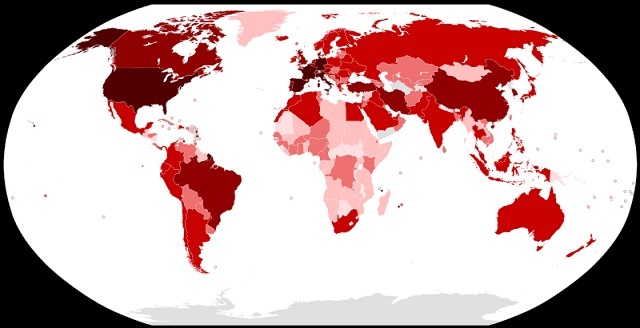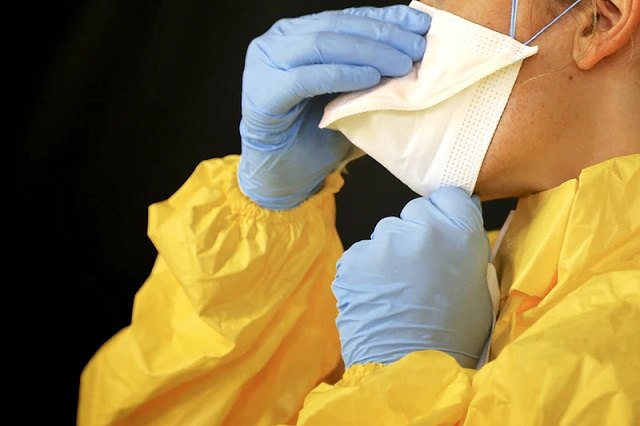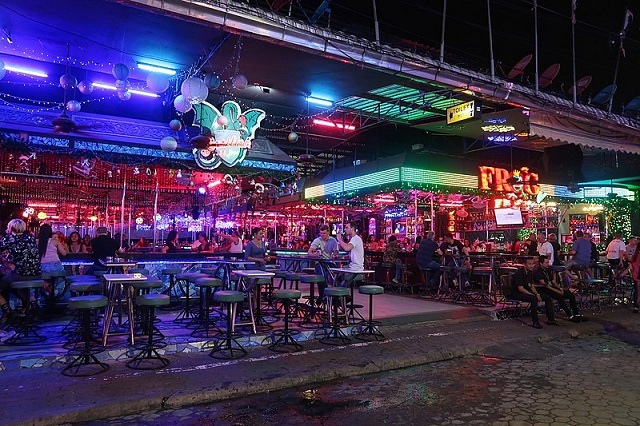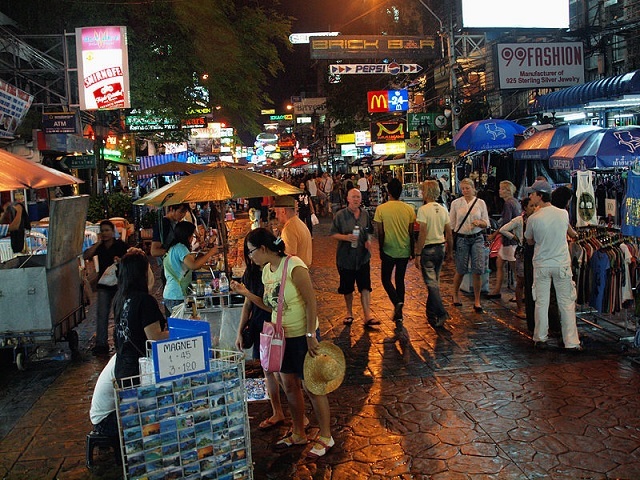Wondered how COVID-19 is affecting the sex tourism markets of Thailand?
As the spread of coronavirus forces businesses from all sectors to close their doors, we consider those industries that don’t hit the headlines, that probably won’t get state or emergency funding. And Thailand sex tourism certainly ticks this box!
Conservative estimates place the number of sex workers in Thailand at between 200,00 and 300,000 people, yet the reality is that there are probably at least double these numbers. These women (and men) work across the main tourist cities plying their trade as bar girls, go-go dancers, escorts and street prostitutes.
Yet, with Thailand closing its borders to foreign visitors and many citizens under some form of curfew or lockdown, there is little trade in this market to support their trade.
In this feature we look at the impact that coronavirus is having on the world’s economies, particularly those of Thailand and we consider what this means for the sex tourism industry and its future.
COVID-19 & Global Economic Recession
The effects of COVID-19 will be felt long after the devastating wave of infections have taken their death tolls and the global economy looks set to be adversely affected by this pandemic for years to come.
In JP Morgan’s weekly economic forecast, they have outlined their predictions for the five nations who will likely be hit the hardest:
Mexico – the joint worst prediction in JP Morgan’s forecast, Mexico was expected to grow its GDP by 1.5% in 2020 but now faces a collapse in economic output by an anticipated 7%. This equates to a reversal of 8.5%.
Mexico’s heavy reliance on the United States has been great for the economy but with their North American neighbors now at the epicenter of the outbreak and itself predicted to suffer a 5.3% fall in GDP, Mexico has also not yet faced its own domestic wave of infection.
Expected to slump in two waves, their economy will be hit first by the decline in trade and travel with the U.S. and then again later in 2020 when local economic activity is hampered by any outbreaks in their own country.

South Africa – also facing a shrink in its GDP of 7%, South Africa was not expected to grow at the same rate as Mexico so this slump will be felt a little less keenly. However, half of its economy is effectively closed at the moment and combined with weak national finances the government has had its rating cut to junk status making it harder for them to borrow their way out of this crisis.
The recovery for this financially troubled nation will be a huge uphill struggle after the outbreak.
New Zealand – following a slump in demand from China (one of the key markets for both Australia and New Zealand) plus a decline in global food exports, the sovereign island nation can expect to lose its expected 2.4% expansion and instead be looking at a 4.8% recession in GDP.
This despite the country’s tough approach on closing borders and only thus far (8th April 2020) reporting less than a thousand cases of coronavirus with just one death.
Other countries on the top ten worst hit nations (predicted) for economic activity 2020 include Spain, United States, Australia, Colombia and Brazil with Thailand being 6th on the list.

Thailand’s Economic Future Post COVID-19
Despite what you think you know about this southeast Asian country, Thailand’s economy has been booming over the last few decades and, in 2019, was ranked in the top 25 countries by GDP in the world.
Its mature tourist industry coupled with strong exports, healthy manufacturing and agricultural sectors plus diverse labour markets have made Thailand the second largest economy in the region behind Indonesia and the fourth wealthiest behind Singapore, Brunei and Malaysia.
Before the outbreak of coronavirus, the country was expected to grow its GDP by 2.8% yet this figure has now been revised by JP Morgan to a contraction of 3.3% (or a 6.1% change in real terms).
Tourism in Thailand generated an income of over $62 billion in 2019 representing around 13% of GDP. A popular destination for holidays, business and other kinds of travel, the country attracts almost 40 million visitors per year many of whom come from neighboring countries across Asia as well as from the West.
With the current lockdowns in the region along with global travel restrictions, Thailand’s tourist economy will certainly be a major casualty of the 2020 coronavirus pandemic.
And, although restrictions are beginning to be lifted in the parts of China where the outbreak is known to have originated, the long-term impact for the whole region is expected to last for the next 12-18 months. Consumers will be reluctant to make plans for long-distance travel and/or unable to afford holidays in a post-COVID-19 landscape.
COVID-19 and Thailand: A Timeline
The spread of the novel coronavirus known as COVID-19 initially came to the attention of the World Health Organization on 31st December 2019. On 12th January 2020, the WHO confirmed Wuhan City in China as the initial cluster where the outbreak started.

Map of COVID-19 infected countries and territories (4 April 2020). Image via Wikimedia.
The first case in Thailand was reported a day later on 13th January 2020 when a Chinese woman (resident to Wuhan City) arrived in Bangkok where border officials picked her up using thermal surveillance. Showing signs of a temperature, the 61-year-old was taking to hospital where (four days later) she tested positive for COVID-19.
Subsequent cases over the next few weeks followed a strikingly similar patter with passengers arriving in Thailand from the affected area of China showing symptoms of, and later testing positive for, the virus.
By the end of January, a total of 19 cases were confirmed in the country including one patient who had not traveled from China; a taxi driver, he had possibly transported a Chinese tourist and picked up the virus as the first human-to-human transmission case in Thailand.
On 3rd February 2020, the Thai government ordered a curfew to take effect between 10.00pm and 4.00am in an effort to slow the spread of the virus. Additional measures including a travel ban on all foreigners entering Thailand were also announced.
In effort to repatriate Thai citizens trapped in Wuhan City since the area went into lockdown on 23rd January 2020, the government chartered a plane on 4th February 2020 to retrieve over 130 people.
Several returning passengers were quarantined with high temperatures but new cases were being reported of people who had arrived from other countries including a Thai couple Japan returning from Japan.

By 11th February 2020, the confirmed cases in Thailand was up to 32 and a few days later, the 35th case in Thailand was recorded of a 35-year-old nurse working in a private hospital. She was the first health worker to contract the virus in Thailand.
On 1st March 2020, the Ministry of Public Health (MOPH) announced the first coronavirus related death, that of a 35-year-old man.
On 8th April 2020, it was announced that Pattaya would go into full lockdown with checkpoints on the roads in and out of the city with effect from Thursday 9th April 2020. The measures will be in place for an initial period of 21 days. Those inside the area under lockdown will be required to wear face masks when in public.
As of 9th April 2020, there have been a total of 2,369 confirmed cases of the coronavirus with 30 deaths in the country.
Effects of Lockdown on Thailand Sex Tourism
The girlie and go-go bars of Thailand’s popular tourist cities and resorts of Pattaya, Chiang Mai, Phuket and Bangkok all rely on visitors to keep them in business. The vast majority of these are foreigners with a good proportion of local expats making up the numbers.
With tourism on the decline both in terms of travel restrictions and the curfews in place, the bars are noticeably suffering the consequences. Pattaya’s Walking Street is eerily deserted, as are Bangkok’s Soi Cowboy and Patpong hot spots.
The economics are simple.
Customers spend money in the bars on two things: beer and girls.
If there are no visitors then the bar has to make some cuts and the girls are the first to go. With no (or fewer) girls then there are less visitors so even those ladies who remain cannot earn the money they need to stay in this kind of employment. With only the expat community supporting these venues, the lack of girls is seeing many bars without any customers already.

The cycle is a vicious one and already there are some areas where the coyote agencies are seeing a mass exodus of girls who are leaving the cities to return home.
Some of this is borne of fear, fear of contracting coronavirus whilst for others it is simply a question of money. If they can’t get work then they can’t afford to pay for their accommodation and living expenses so the only option is to go back home.
With news this week that some resorts and cities are to close completely to outsiders, the decision to close up shop may be taken from the bar owners and become fait accompli.
So, what about the girls who have decided to brave city life and stay in the cities? How are they earning money in the interim?
Despite government advice on social distancing measures to slow the rate of the virus’s spread, some are still punting their services on the streets and in those bars that remain open. It’s a dangerous business but some of these women are desperate to make ends meet.
By contrast, some women (including escorts) are being incredibly selective about any men they do business with; sort of like home-screening, foreigners are avoided like the plague and if you have a Chinese sounding name…forget it.

The Future of Thailand’s Sex Industry
The short-term future of the global economy looks bleak and right across the world there will be many businesses who will be unable to survive the affect that this pandemic has had financially.
The bars in Thailand are closed or closing and, until the coronavirus is brought under control, there is little chance that they will re-open in the foreseeable future. Those that do remain open are not earning the revenues they need to pay their overheads and with rent so high, particularly in cities like Bangkok, they are relying very heavily on the local community (including expats) to support them through this crisis.
However, residents and staff are all afraid of catching the virus so even those bars are likely to fold in the short term.
Coupled with working girls abandoning the cities in favor of their safer and more rural homes, it could be a long while before Thailand’s sex tourism returns to any degree of normality.
